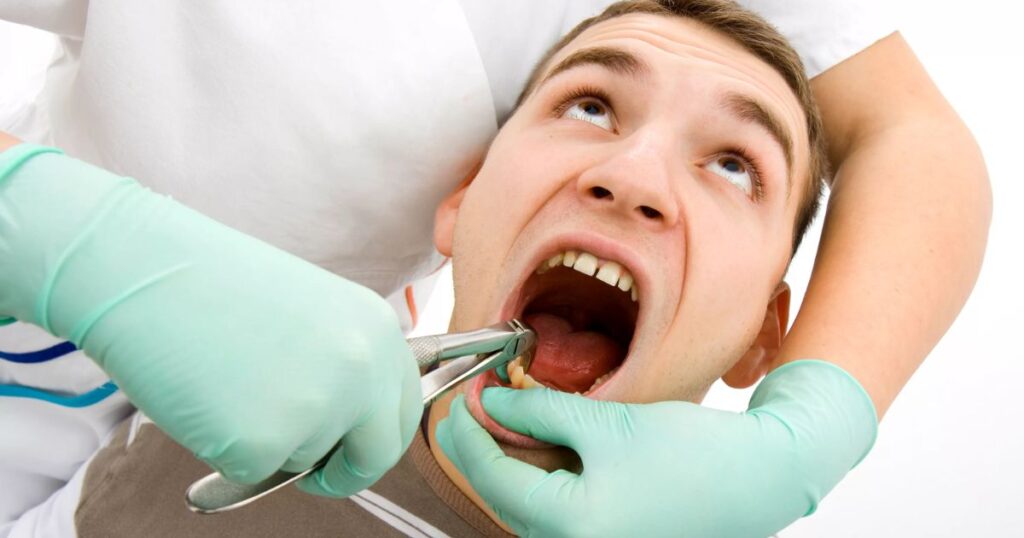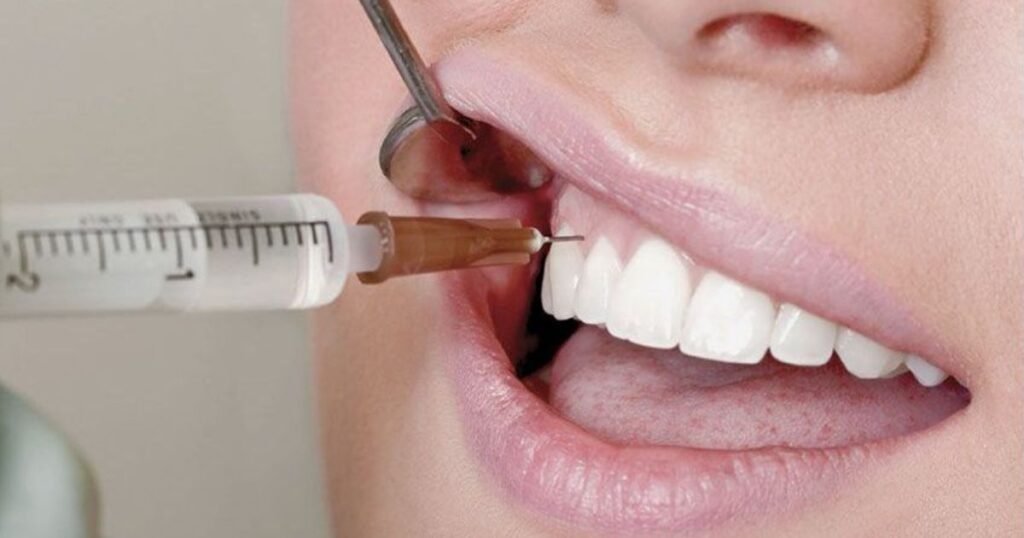Tooth infections, also known as dental abscesses, can start out seemingly harmless but quickly escalate into a potentially life-threatening emergency. A spreading tooth infection can be deadly if left untreated, so it’s critical to recognize the symptoms and see a dentist immediately at the first sign of trouble.
This article will provide a deep dive into how tooth infections progress, the grave dangers as they advance, warning signs that indicate an emergency, and how long a person typically has to seek treatment before the worst outcomes occur. Let’s delve into these tooth infection details to understand when they become severe, how long until life-threatening, and the vital role of swift professional dental care.
What Are Tooth Infections and What Causes Them?

A tooth infection occurs when bacteria invade the pulp or root of a tooth, causing inflammation, pus, and swelling. Tooth decay and dental cavities are common culprits, as cracks allow bacteria to enter the inner tooth structure. Trauma like a chip or crack from injury can also enable bacteria to infect the tooth.
Locations of Tooth Infections:
- In the tooth pulp or “guts” of the tooth
- In the root or roots of the tooth
- In the gums surrounding the tooth (gum abscess)
Once infected, pus and fluid buildup leads to a pocket of inflammation called an abscess. Infection and swelling puts pressure on the tooth, causing throbbing toothache pain as nerves become irritated.
How Does a Tooth Infection Progress and Spread If Left Untreated?

A tooth infection starts as a localized problem but can rapidly spread to surrounding tissue. Here is an overview of how a tooth infection typically advances:
Early Stages:
- Tooth decay allows bacterial invasion of pulp
- Irritation and pus buildup in infected pulp chamber
- Swelling contained inside tooth structure initially
- Mild to moderate toothache pain
Mid-Stage:
- Infection and swelling spreads down tooth roots
- Begins affecting surrounding gums and jawbone
- Increased tooth pain and sensitivity to hot/cold stimuli
- Possible gum swelling and abscesses
Advanced Stage:
- Infection reaches the jawbone and starts spreading
- Significant facial swelling around jaw and neck
- Severe throbbing pain, fever, and toxicity sets in
- Difficulty opening mouth and swallowing
Late Stage:
- Life-threatening cellulitis or sepsis as bacteria enter bloodstream
- Infection reaches vital organs like heart, brain, lungs
- Systemic infection can cause organ failure and death
As you can see, an untreated localized tooth infection can rapidly spiral into a dangerous systemic issue. Spreading infections demand emergency dental intervention.
What Are the Symptoms of a Developing Tooth Infection?
Be alert for these signs of a brewing tooth infection:
- Tooth pain from mild to severe, especially with hot/cold sensitivity
- Gum swelling around the infected tooth
- Pimples or blister on the gums near the tooth
- Bad breath or foul tastes from the infected area
- Tooth becoming loose, or changing color
- Swelling of the jaw, face, or neck, especially one side
- Fever and chills indicating systemic spread
- Fatigue, headache, and general illness feeling as infection worsens
When Should Someone Seek Emergency Treatment for a Tooth Infection?
Seek same-day emergency dental care or ER treatment if you experience:
- Unbearable throbbing toothache
- High fever over 100°F -Facial or neck swelling spreading quickly
- Difficulty swallowing, opening your mouth
- Difficulty breathing
- Signs the infection is spreading like a red streak on your face or neck
These signals indicate the infection could be progressing to a life-threatening stage and emergency intervention is needed.
How Long Until an Untreated Tooth Infection Becomes Deadly?

This depends on multiple factors but generally tooth infections can become life-threatening in 3-7 days without treatment.
Here is an approximate timeline:
- 1-3 days: Symptoms like toothache, swelling, fever appear signaling infection spread.
- 3 days: Infection is spreading rapidly in tissue, jawbone, face and neck. Danger of airway blockage.
- 5 days: Infection reaches deep tissue and can enter bloodstream. At high risk of descending into sepsis.
- 7 days: Sepsis and septic shock can cause organ failure, coma, and death.
However, for individuals with compromised immune systems or other risk factors, the descent into a deadly systemic infection can occur much faster, in as little as 24-48 hours. High risk patients require emergency treatment immediately at the first signs of infection.
How Are Tooth Infections Treated Professionally?
Treating tooth infections requires professional dental expertise. Typical treatment options include:
- Antibiotics: Prescribed to control the spread of infection to deeper facial regions.
- Root Canal: Diseased tooth pulp is removed and the inner tooth sterilized and sealed.
- Tooth Extraction: Pulling the infected tooth if decay is too severe for other treatments.
- Draining Abscesses: Lancing and draining any facial or gum abscess buildup.
The key is using dental x-rays and clinical signs to determine the optimal treatment specific to the nature and stage of the infection. Just using antibiotics without addressing the source of infection is insufficient.
Are Tooth Infections Preventable?
Absolutely. You can minimize your risk of developing tooth infections by:
- Brushing and flossing twice daily
- Having regular professional cleanings and oral exams
- Getting cavities filled early before they progress
- Avoiding trauma to teeth from sports and accidents
- Managing health conditions like diabetes that increase risks
- Limiting sugary foods and acidic drinks that erode enamel
Promptly treating any emerging dental problems prevents minor issues from escalating into severe infectious dangers.
Should Antibiotics Alone Cure a Tooth Infection?

While antibiotics play an important role, they cannot cure a tooth infection alone. The source of infection must be properly treated by a dentist through root canals, tooth extraction, or abscess drainage.
Taking only antibiotics can make the infection appear resolved, but it will continue festering and return worse than ever. Overusing antibiotics also breeds resistance. They provide a helpful adjunct to professional dental treatment, not an independent cure.
When Should Someone Go Immediately to the Hospital?
Hospital ER treatment is required if you have:
- Difficulty breathing due to swelling closing your airway
- Sepsis indicators like high fever with dizziness and rapid heart rate
- Signs of stroke or heart issues from infection spread
- Severe facial or neck swelling impeding your airway
In these cases, hospital teams can provide intravenous antibiotics and airway management that may be required to save your life until definitive dental treatment is possible.
Who is at Highest Risk of Serious Complications from Tooth Infections?
Those with increased vulnerability include:
- People with weakened immune systems – diabetes, HIV, leukemia
- Very young children and the elderly
- Those undergoing cancer treatments
- People with prior heart or lung conditions
- Individuals taking steroids or immunosuppressant drugs
For these high-risk groups, a spreading tooth infection can rapidly become deadly, so early signs must be treated as emergencies requiring immediate dental evaluation.
The Importance of Making the Right Decision at the Right Time
Given the potential dangers, it is vital to seek professional dental advice promptly when symptoms arise. No one should gamble with spreading infections based on internet guesses. Dentists can clinically examine the infection and use x-rays to determine how severe and invasive it may be.
They provide the expertise to know when emergency treatment is needed versus when the situation can be monitored. With tooth infections, waiting leads to bigger problems. Connect with your dentist immediately for guidance when you notice any concerning dental symptoms or pain.
Tooth Infections Should Never Be Ignored
While originally localized, tooth infections can rapidly spiral out of control and become life-threatening – sometimes in as little as 3-7 days without treatment. Any spreading dental infection must be considered an emergency. At the first sign of symptoms, promptly consult dentists rather than gamble with increasingly dangerous at-home waiting. With aggressive tooth abscesses, timing is everything. Remember these key takeaways:
- Monitor for early infection symptoms like tooth pain and facial swelling
- Seek same-day dental care if you experience high fever, trouble breathing/swallowing, or signs of spreading infection
- In 3-7 days, an untreated infection can spread systemically and become deadly
- Prompt professional treatment and good dental hygiene prevents complications
- Use antibiotics as an adjunct treatment but address the source of infection also
- High-risk individuals need immediate care due to susceptibility
Don’t play games with tooth infections – a spreading infection can quickly become a lethal danger requiring emergency medical intervention. Call your dentist right away at the first signs of trouble to halt the progression and get proper professional care – it could save your life!
FAQ’s
How do you tell if a tooth infection is killing you?
Severe symptoms like high fever, trouble breathing or swallowing, heartrate changes, and sepsis indicators mean the infection could become deadly without emergency care.
How long can you survive with a tooth infection?
Typically 3-7 days before an untreated tooth infection potentially becomes life-threatening. But it can progress rapidly in as little as 24-48 hours for high risk groups.
Is death from a tooth infection rare?
Death is rare with prompt treatment. But untreated infections can spread to vital organs quickly. Sepsis and complications like airway swelling can become fatal without emergency dental and medical care.
Conclusion
Tooth infections should never be taken lightly. While they may start as a localized toothache, without proper dental treatment they can rapidly escalate into a medical emergency. Just 3-7 days of progression can turn a simple abscess into a deadly systemic infection. If you notice any signs of a brewing tooth infection like pain or swelling, immediately seek professional dental advice and treatment.
The key is prompt intervention to halt the infection before it endangers your health and life. With aggressive dental infections, timing is critical. Stay vigilant for symptoms and see your dentist right away at the first signs of trouble – it could save you from enduring serious, even life-threatening, complications.
Don’t gamble with your wellbeing; a spreading tooth infection is a dental emergency requiring immediate care. Consult your dentist promptly to initiate the right treatment plan and stop the infection in its tracks before the worst outcomes can occur.











